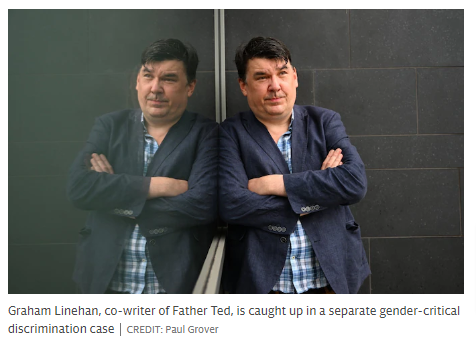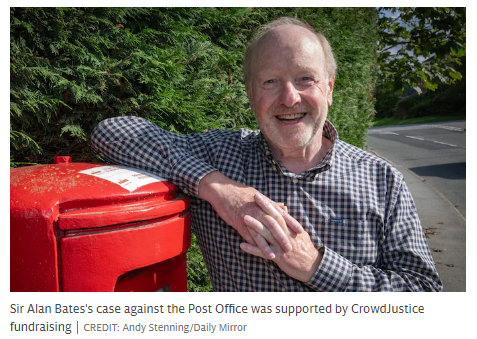
Sara Morrison, a single mother from Belfast, felt discriminated against after participating in a gender-critical Let Women Speak rally. She turned to CrowdJustice, a crowdfunding platform, to raise funds for a tribunal against her employer, claiming she was forced out of work due to stress.
Morrison’s post, published earlier this summer, resonated with many: “I don’t believe that anybody should be discriminated against for having gender-critical views and talking about them.” It wasn’t long before her case caught the attention of JK Rowling, the Harry Potter creator, who shared her support on social media. Rowling’s endorsement quickly raised thousands of pounds for Morrison’s case, doubling her initial £15,000 target with donations from over 1,000 backers. One donor expressed solidarity, saying, “I am a single mum currently going through similar with my employer of 20 years.”
On Mumsnet, where users use gardening metaphors to discreetly discuss fundraising due to site rules, support for Morrison grew. Messages like, “Pitiful carrot planted but let’s hope there’s a whole field of them,” and “Just did a little digging – can’t understand why these organisations don’t realize that they can’t treat workers like this,” reflected the community’s support. Simon Chambers, Morrison’s lawyer who also represents Graham Linehan, a co-writer of Father Ted, in a separate gender-critical discrimination case, stated that the additional funds would enable him to dedicate more resources to Morrison’s legal battle. This case is part of a larger trend where employees turn to public support for disputes that resonate on a broader scale.

Gender-critical discrimination cases, like Morrison’s, are garnering significant public backing as workers claim they are penalized for opposing transgender ideology or supporting women’s rights. Elspeth Duemmer Wrigley, a government lawyer, raised £40,000 this year after being sued for stating that only women can have periods. The case was later dropped. Chambers pointed out legal concerns where staff are punished for holding views contrary to those of their company’s customers, noting that the law can feel secondary to consumer whims.
High-profile cases and support from celebrities and communities have amplified the reach of these legal battles. Ursula Doyle, a former editor at Hachette who claimed she was forced out for publishing Kathleen Stock’s gender-critical book “Material Girls,” raised almost £50,000 on CrowdJustice with significant support from Mumsnet users. Tanya de Grunwald, an advisor on employment issues, explained that the public’s eagerness to back these cases stems from collective frustration. “People’s generosity isn’t pure altruism,” she said. “It’s a result of collective pent-up resentment that a large number of people have around these issues.”
CrowdJustice has become a powerful tool for those seeking legal redress. Unlike other crowdfunding platforms, the money raised goes directly to the lawyers. Dawn Bebe, head of Crowdfunder, which acquired CrowdJustice last year, reported a surge in activity on the platform, with the number of cases rising by 265% since 2015. The platform has raised £14 million since its inception in 2014, primarily for legal cases from individuals who couldn’t secure legal aid or fund their cases privately. “More and more people realize this is a legitimate way to raise money,” Bebe noted, emphasizing the platform’s influence on case law and its potential to challenge the status quo.

As the government prepares for significant changes in workers’ rights, including granting full employment rights from the first day on the job, there is concern among employers about a potential rise in lawsuits. A City chairman expressed unease, feeling the pendulum has swung too far towards employees since the Covid-19 pandemic. However, lawyers representing mistreated workers argue that the rise of donation-based lawsuits reflects public frustration and willingness to support those they feel emotionally connected to.
Chambers highlighted the importance of personality-driven cases in crowdfunding success, stating, “Nobody is interested in a lawyer talking about a case – it has to be personality-driven by the claimants.” He believes that crowdfunding has given visibility to “weird and wonderful cases” that might have otherwise gone unnoticed. “Employers have had it good for an awful long time,” he said. “It’s a small swing back of the pendulum in the direction of the employee.”
As public support continues to grow, platforms like CrowdJustice are likely to play an increasingly significant role in shaping the legal landscape, empowering individuals to challenge perceived injustices and advocate for their rights.





